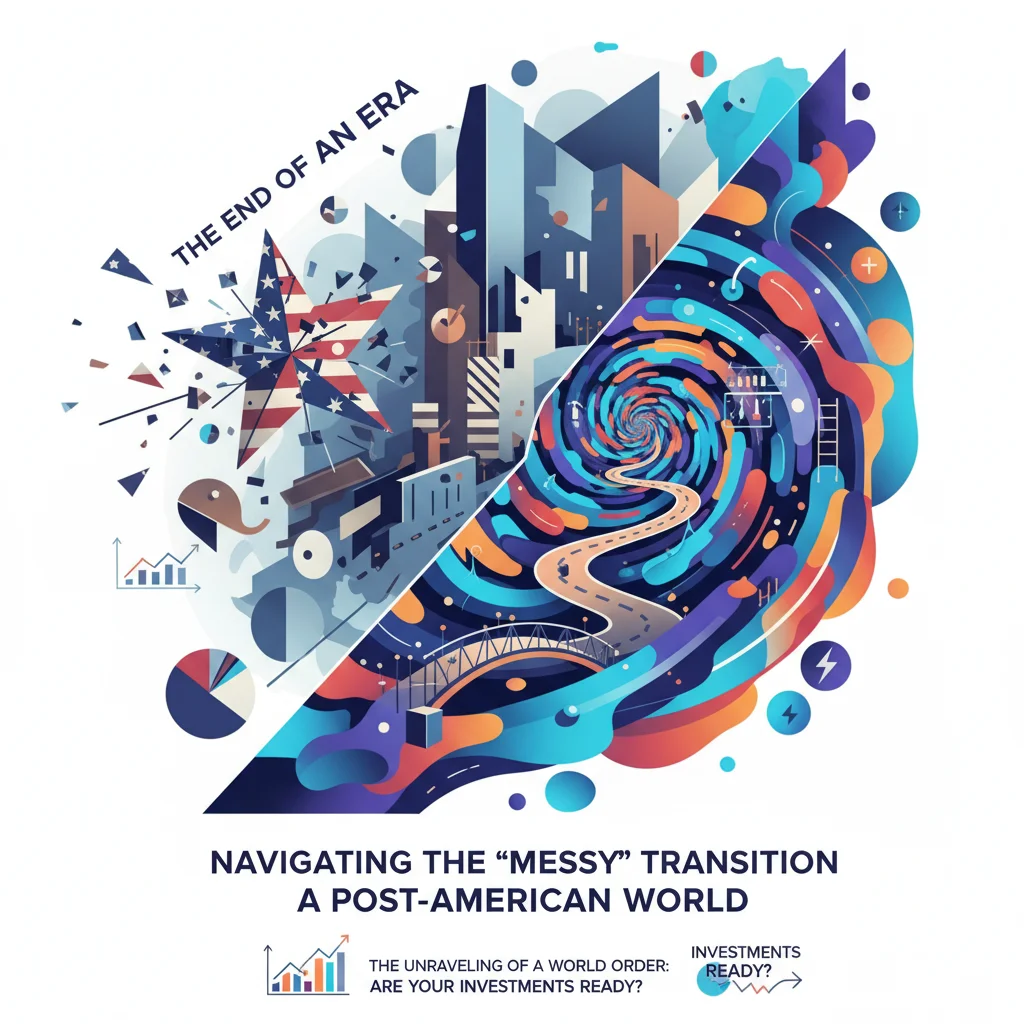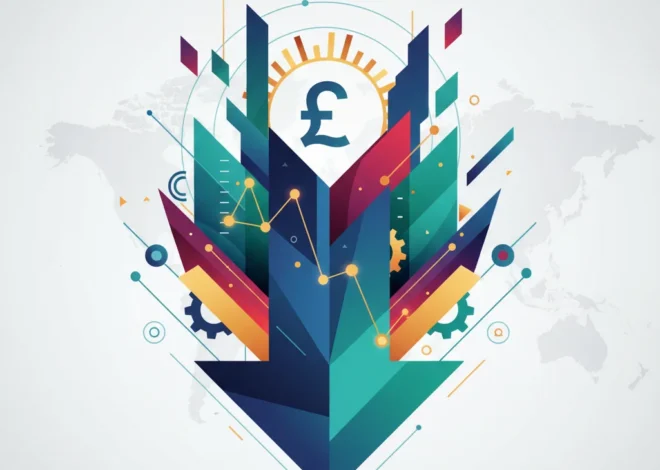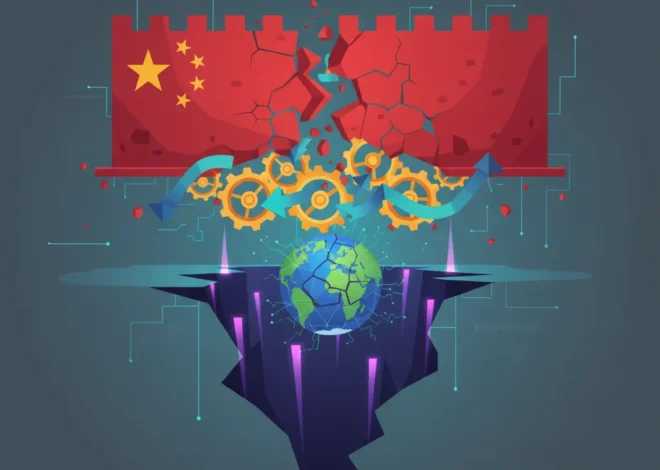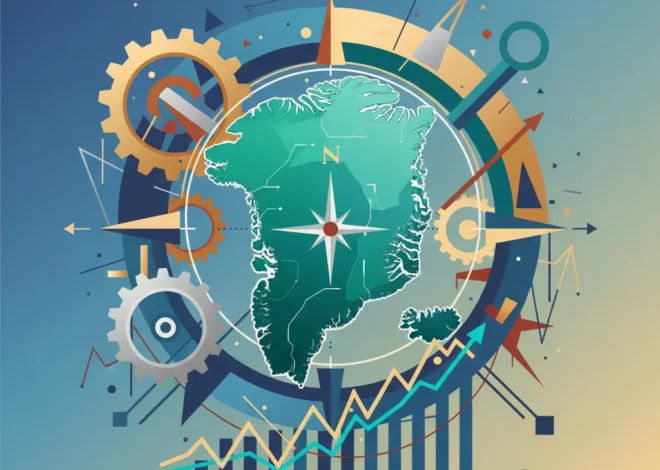
The End of an Era: Navigating the “Messy” Transition to a Post-American World
The Unraveling of a World Order: Are Your Investments Ready?
For over seven decades, the global economy has operated on a relatively stable, if imperfect, foundation. Underwritten by the economic and military might of the United States, this “Pax Americana” created a predictable environment for international trade, finance, and investment. It was an era where supply chains stretched across continents, capital flowed with relative ease, and the U.S. dollar reigned supreme as the undisputed king of the financial world. But that era, according to one of the world’s most astute political leaders, is coming to a “messy” and “dangerous” end.
In a stark warning, Singapore’s Prime Minister Lawrence Wong has cautioned that the transition to a new global order will be chaotic, fraught with risk, and defined by a vacuum that no single nation can fill. For investors, business leaders, and anyone involved in the global economy, this isn’t just a distant geopolitical headline; it’s a fundamental shift that will redefine the rules of finance, investing, and international business for decades to come. Understanding the contours of this new landscape is no longer optional—it’s essential for survival and success.
From Unipolar Stability to Multipolar Mayhem
The post-World War II order was built on a simple premise: U.S. leadership provided a global public good—security. This security umbrella allowed nations to focus on economic growth, fostering an unprecedented period of globalization. The benefits were immense, leading to a surge in global trade, lower consumer prices, and explosive growth in the stock market. The system wasn’t perfect, but it was predictable.
Prime Minister Wong’s central thesis is that this predictability is evaporating. He argues that while the U.S. remains a pre-eminent power, it no longer possesses the will or the capacity to single-handedly underwrite the global system. At the same time, rising powers like China are asserting their influence, but as Wong notes, “no other country can fill the vacuum left by the US.” (source)
This leads not to a new, stable bipolar order, but to a multipolar world characterized by competing interests, regional power blocs, and a distinct lack of overarching rules. This is the “messy” transition Wong fears. It’s a world where economic interdependence is no longer a guarantee of peace but is instead weaponized through sanctions, tariffs, and technology restrictions. The implications for the global economy are profound, signaling a potential move away from efficiency-driven globalization towards a more fragmented and resilient-focused model.
The Haiku That Captured a Global Tax Headache: Deconstructing the Economics of Property Levies
To better understand this monumental shift, consider the key differences between the world we are leaving and the one we are entering.
| Characteristic | The US-Led Unipolar Order (Pax Americana) | The Emerging Multipolar Order |
|---|---|---|
| Global Security | Largely underwritten by the U.S. military and its alliance system. | Fragmented, with regional powers (China, Russia, India, EU) asserting influence. Increased potential for regional conflicts. |
| International Trade | Governed by institutions like the WTO, promoting free trade and global supply chains. | Characterized by protectionism, “friend-shoring,” trade blocs, and the weaponization of economic policy. |
| Technology & Innovation | Dominated by U.S. innovation (e.g., Silicon Valley), with global standards often set by American firms. | Bifurcated technology ecosystems (e.g., US vs. China spheres), leading to “decoupling” in areas like AI, 5G, and semiconductors. |
| Global Finance & Banking | U.S. Dollar is the undisputed reserve currency. SWIFT system dominates international banking. | Challenges to dollar dominance emerge (e.g., digital yuan, commodity-backed currencies). Alternative payment systems and the rise of fintech and blockchain solutions. |
The Economic Fallout: Recalibrating for a World of Friction
For decades, the core principles of finance and economics have been based on the assumption of an increasingly integrated world. This new era of fragmentation turns many of those assumptions on their head. Here’s how it could impact key areas:
- Persistent Inflation: The hyper-efficient, just-in-time global supply chains of the past were a powerful disinflationary force. As companies are forced to build redundant, regionalized, or “friend-shored” supply chains, costs will inevitably rise. This structural shift could lead to a baseline of higher inflation than we’ve been accustomed to, complicating central banking policy and investment returns.
- Stock Market Volatility: Geopolitical risk is no longer a tail risk; it’s a central factor. A single diplomatic incident, trade dispute, or regional conflict can send shockwaves through the stock market. Sectors with heavy reliance on global supply chains, like technology and manufacturing, are particularly vulnerable. Investors will need to demand a higher risk premium for international exposure.
- The Future of the Dollar and Banking: The U.S. has increasingly used the dollar’s dominance and its control over the global banking system (like SWIFT) as a foreign policy tool. This has incentivized countries like China and Russia to build parallel financial infrastructures. While the dollar’s reign is far from over, this trend could slowly erode its status, impacting everything from international trading to national debt management. The rise of decentralized finance and blockchain-based systems could accelerate this fragmentation.
- A New Paradigm for Investing: The “set it and forget it” approach to global index fund investing may become less effective. A more nuanced approach that considers geopolitical alignments, supply chain resilience, and sovereign risk will be crucial. The economics of investing are shifting from a pure focus on growth and efficiency to a balanced consideration of resilience and security.
Strategies for a Fractured World: How to Adapt and Thrive
The transition Wong describes is not a call for panic, but a summons for preparation. Business leaders and investors must pivot from an efficiency-first mindset to a resilience-first strategy. According to the Financial Times, Wong believes this new era of “great power contestation” will last for the rest of this decade and beyond. Acknowledging this reality is the first step toward building a robust strategy.
For Business Leaders:
- Diversify Supply Chains: The era of single-sourcing from the lowest-cost provider is over. Building redundancy through a “China + 1” strategy or regionalizing supply networks is now a critical component of risk management.
- Embrace Financial Technology: Invest in fintech solutions that can navigate a more complex international payment landscape. Explore tools that can hedge against currency volatility and provide greater transparency in cross-border transactions.
- Geopolitical Intelligence: Incorporate high-level geopolitical analysis into your strategic planning. Understanding the political landscape of the countries you operate in is as important as understanding their economic fundamentals.
The Trillion-Dollar Question: Is High Public spending the Real Threat to Our Economy?
For Investors:
- Re-evaluate Geographic Allocation: A simple “US vs. International” split is too simplistic. Investors need to differentiate between countries based on their political stability, strategic alliances, and position within emerging trade blocs.
- Focus on Resilient Sectors: Identify companies and sectors that are less vulnerable to geopolitical shocks. This could include businesses with localized supply chains, strong domestic demand, or those providing essential goods and services like healthcare and utilities.
- Look for “Bridge” Technologies: Consider investing in companies that facilitate connectivity in a fragmented world. This includes logistics firms, cybersecurity providers, and financial technology platforms that enable seamless cross-border commerce and trading.
Truce on a Knife's Edge: Decoding the Economic Tremors of the Gaza Ceasefire for Global Investors
The Only Certainty is Change
Prime Minister Lawrence Wong’s warning is a clear-eyed assessment of a world in flux. The stable, U.S.-led order that powered the global economy for generations is giving way to something more complex, multipolar, and inherently less predictable. This “messy” transition will create both significant risks and new opportunities across every facet of finance, from institutional banking to retail stock market investing.
Ignoring this tectonic shift is not an option. The winners in this new era will be those who are agile, informed, and willing to challenge the long-held assumptions that defined the last half-century of economics. The road ahead may be uncertain, but by understanding the forces at play, we can begin to build the strategies needed to navigate it successfully.


